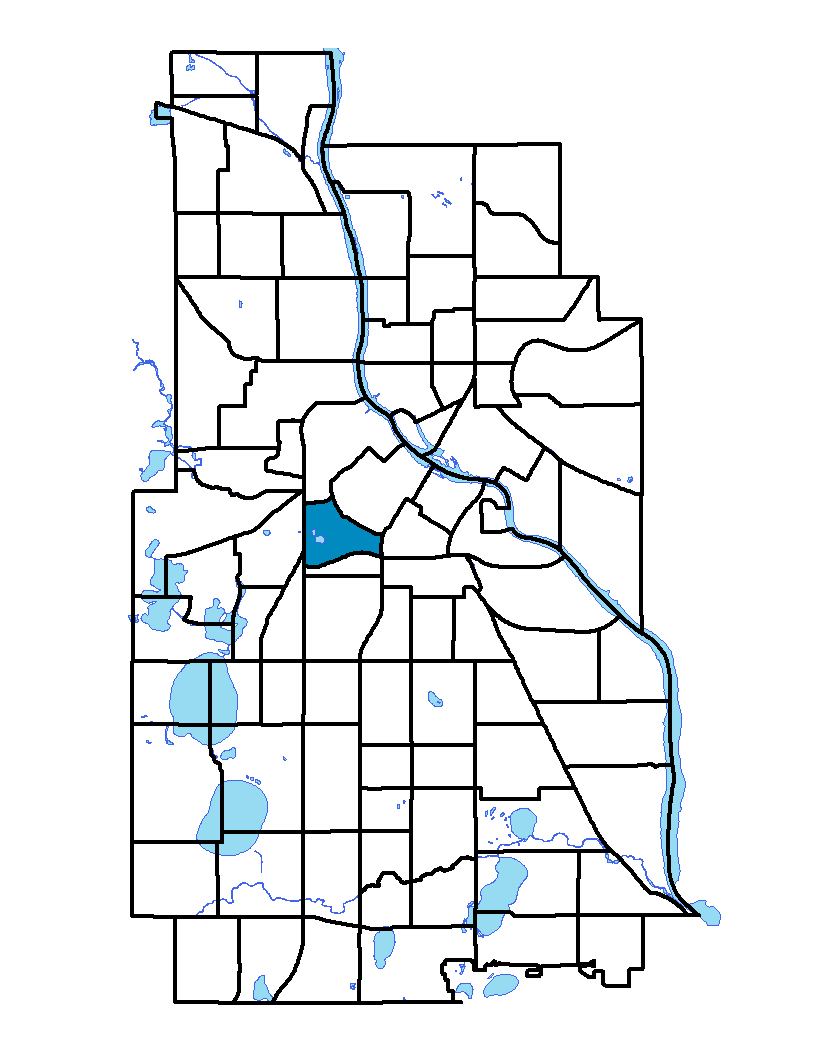Loring Park neighborhood is located in the southwest portion of downtown Minneapolis. The neighborhood is bound on the west by West Lyndale North, Lyndale South and Hennepin avenues; on the south by Interstate 94 and on the east by Highway 65. Interstate 394 and 12th Street North and South form the northern and northeastern borders. The neighborhood is named for its park, Loring Park, which was known as Central Park until its name was changed in honor of Charles Loring, the first superintendent of the Minneapolis park system. Turn-of-the-century brick walk-up apartments and a row of businesses surround the park. The neighborhood is home to important institutions and buildings such as the Basilica of Saint Mary, the Hennepin Avenue United Methodist Church and the Woman's Club. The Walker Art Center and Guthrie Theater nearby and many restaurants and cafés ensure an active social and cultural life.
To learn more about the neighborhood association visit: www.loringpark.org
Learn more about: Loring Park Neighborhood Master Plan
Indicator Details
| Indicators | Primary Domain | Indicator Value |
Rank |
Tier |
|---|---|---|---|---|
| Residential Proximity to Traffic | Environmental Hazards | 70.8% | 86 | Bottom |
| Proximity to Brownfield Sites | Environmental Hazards | 33.3% | 81 | Bottom |
| Vacancy Rates | Housing | 13.8% | 77 | Bottom |
| Residential Mobility | Social Cohesion | 68.8% | 72 | Bottom |
| Local Business Vitality | Economic Health | 45.8% | 68 | Bottom |
| Low Birth Weight | Health Systems and Public Safety | 11.5% | 68 | Bottom |
| Preventable Hospitalizations | Health Systems and Public Safety | 5.6 | 65 | Bottom |
| Voter Participation | Social Cohesion | 19.8% | 59 | Bottom |
| Public Assisted Households | Employment Opportunities | 31.4% | 59 | Bottom |
| Motor Vehicle Collisions | Health Systems and Public Safety | 10.9 | 57 | Middle |
| Offsite Alcohol Outlets | Neighborhood Characteristics | 1.7 | 55 | Middle |
| Violent Crime | Health Systems and Public Safety | 60.1 | 55 | Middle |
| School Proximity to Traffic | Environmental Hazards | 33.3% | 52 | Middle |
| Excessive Housing Cost Burden | Housing | 30.0% | 49 | Middle |
| Tree Cover | Natural Areas | 28.0% | 48 | Middle |
| Toxic Releases from Facilities | Environmental Hazards | 2.1% | 47 | Middle |
| Business Retention | Economic Health | 1.7% | 40 | Middle |
| Employment Rate | Employment Opportunities | 69.3% | 39 | Middle |
| Proximity to Superfund Sites | Environmental Hazards | 4.2% | 36 | Middle |
| Access to Parks and Open Space | Natural Areas | 9.1% | 29 | Top |
| Adult Educational Attainment | Educational Opportunities | 95.0% | 28 | Top |
| Blood Lead Levels in Children | Housing | 2.1% | 22 | Top |
| Reading Proficiency | Educational Opportunities | 25.0% | 20 | Top |
| Chronic School Absence | Health Systems and Public Safety | 37.9% | 18 | Top |
| Long-Term Unemployment | Employment Opportunities | 3.8% | 17 | Top |
| Age of Housing | Housing | 67.1% | 13 | Top |
| Travel Time to Work | Employment Opportunities | 19.9 minutes | 10 | Top |
| Commute Mode Share | Transportation | 49.9% | 9 | Top |
| Transit Accessibility | Transportation | 894.7 | 5 | Top |
| Access to Mainstream Financial Services | Economic Health | 9.3% | 5 | Top |
| Walkability | Neighborhood Characteristics | 89 | 4 | Top |
| Household Transportation Costs | Transportation | 12.1% | 3 | Top |
| Pedestrian Connectivity | Transportation | 374.1 | 3 | Top |
| Food Desert | Neighborhood Characteristics | 33.3% | 2 | Top |
| High School Graduation Rate | Educational Opportunities | -% | - | Data N/A |
| School Readiness Scores | Educational Opportunities | -% | - | Data N/A |
| Preschool Enrollment | Educational Opportunities | -% | - | Data N/A |

